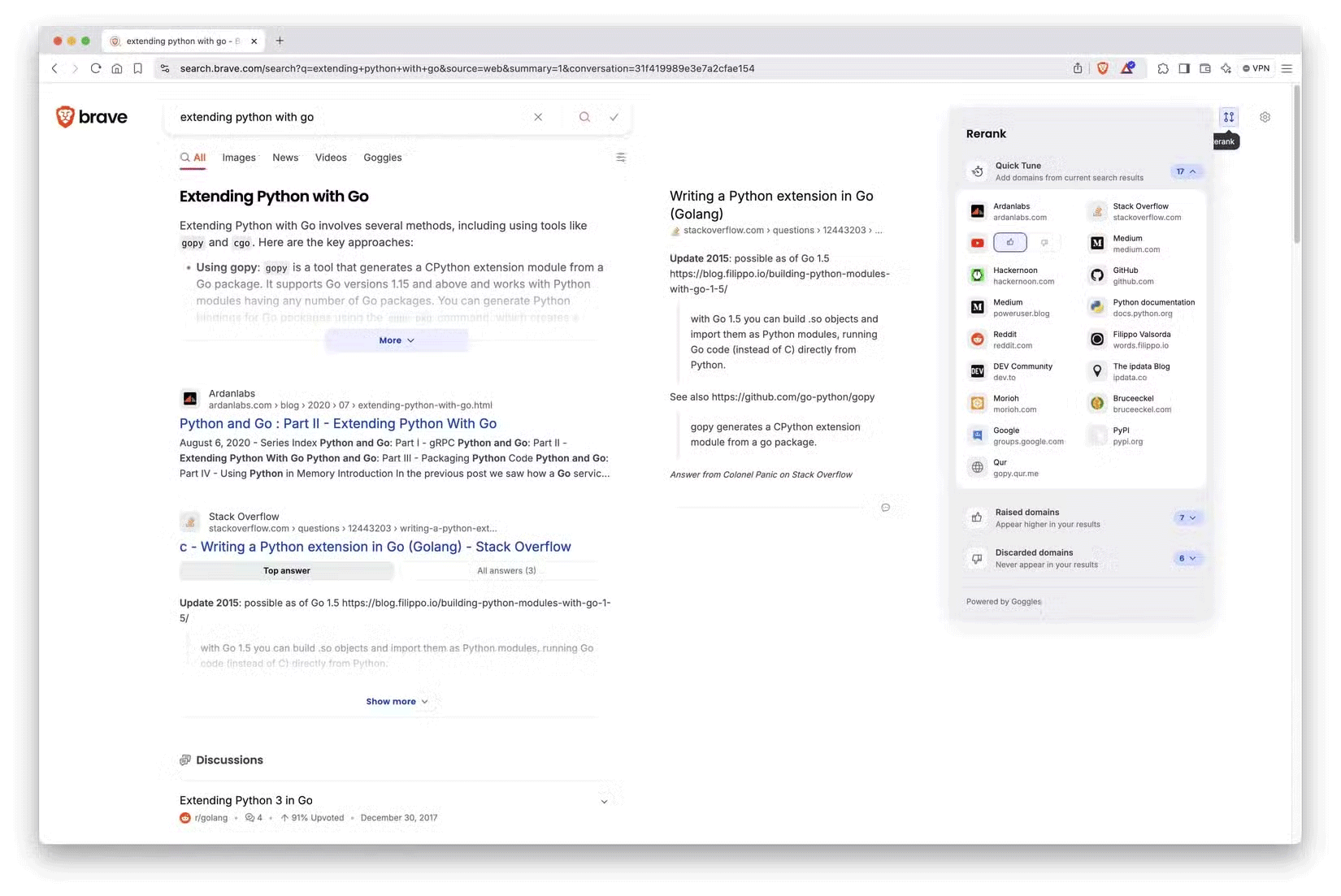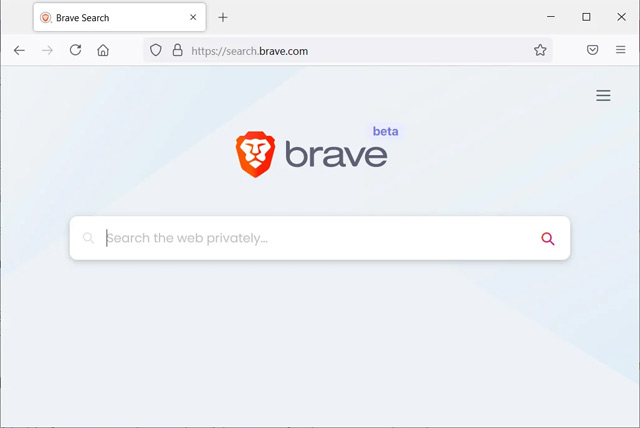Brave Search will now let users 'downvote' bad website results
What if search engine rankings weren't based on what the algorithm says, but instead on your favorite websites? That's exactly what Brave Search is trying to do after adding a voting system that lets users rate websites up or down, depending on how well they meet their needs.
Brave Search Adds Re-Ranking System to Help You Shape Your Results
As announced on the Brave blog, the company has announced its new 'Rerank' system. This system allows you to 'raise' or 'discard' search results, letting Brave know which sources you like or dislike. The search engine will adjust future search results by boosting the rankings of sites you like and hiding sites you've rejected.

It's important to note that whenever you approve or remove a site, your actions will not affect other people using Brave Search. Your vote only changes what you see when using Brave Search, and conversely, other people's votes do not affect what you see. So you can feel free to express your opinion when shaping your search results.
This feature is rolling out now, so if you want to try it out for yourself, just head to Brave Search and search for something. On the results page, click the up-down arrow button in the top right. You'll see all the sites Brave used to generate your results; like and dislike anything you want/don't want to see. The next time you search with Brave, it will take these votes into account and adjust your results accordingly.
If you have never used this search engine before and want to learn more about it, read our detailed introduction to Brave Search below.
Brave Search is a formidable competitor to Google
Brave, the maker of the popular ad-blocking browser, launched a public beta of its privacy-focused search engine Brave Search on June 22. This marks the first step in creating a product that can compete with the giant Google. Brave Search will become the default search engine in the Brave browser later this year.
Unlike other new search engines, which often refresh results from Google and Microsoft's Bing, Brave is building an independent index of the web. Brave Search will rely on Bing in some areas, like images, where Brave's own results aren't good enough. For regular searches, Brave may incorporate Google results for people who enable the feature.
Initially, Brave Search won't show ads — the primary way Google makes money from its search results. It will eventually offer free, ad-supported search and a paid, ad-free option.

More than 92% of all searches go through Google, according to analytics firm StatCounter. Bing is second at 81%. But an opportunity may have opened up as Google comes under increasing pressure to protect user privacy and as governments around the world step up antitrust scrutiny. Public opinion, regulatory action and legislation could help smaller companies take on Big Tech.
CEO Brendan Eich, who led Mozilla and Firefox before co-founding Brave, said getting more people to use Brave Search was key. Users play a key role in improving Brave Search, Eich said, steering Brave's servers toward high-quality websites that Brave Search crawls and includes in its results.
Brave isn't the only company taking aim at Google's core business. Privacy-focused search engine and mobile browser DuckDuckGo said this month it had surpassed $100 million in annual revenue and plans to launch a desktop browser.
DuckDuckGo, like Yahoo, Ecosia, StartPage, Qwant and other smaller search engines, resurrects search results from Microsoft Bing and Google through partnerships with the larger search companies.
Google has not commented on the matter. However, the search giant has made efforts to provide accurate search results and cut down on misinformation, especially regarding COVID-19, in recent blog posts.